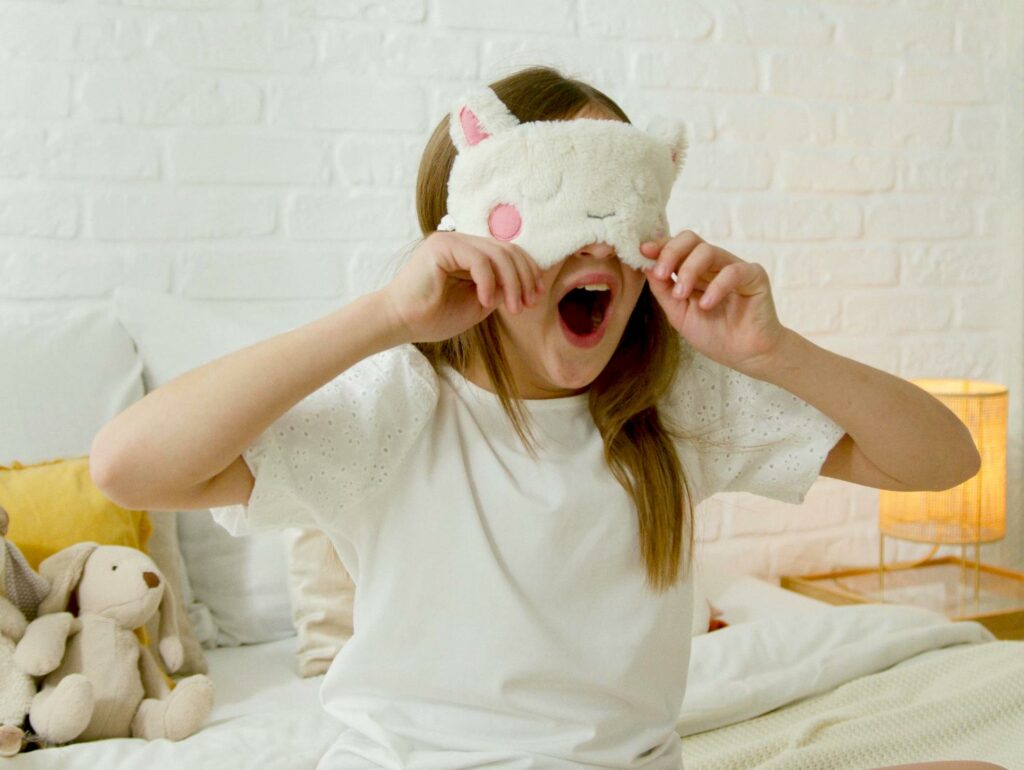It can be unsettling to hear your child screaming or crying in the night from a nightmare or night terror.
Unfortunately, nightmares and night terrors can be quite common in children, but they typically aren’t a cause for alarm. There are some steps you can take to help your child overcome these sleep issues, but if your family is struggling you can ask for help from your doctor.
What is a Nightmare?
Nightmares are scary dreams that wake your child and make it difficult for them to go back to sleep. Dreaming becomes more intense during the later half of your child’s nighttime sleep cycle, and that’s typically when nightmares occur.
Unlike night terrors, when your child has a nightmare, they will have a memory of it and are able to tell you what it was about.
Nightmares can feel very real to your child, so they may wake up crying and scared and unable to settle back down on their own. Just like dreams help you child’s mind process information or events from their life, nightmares usually relate to what your child is struggling with. A toddler may have nightmares about being separated from their parents. Preschoolers may have nightmares about monsters. Older children may have nightmares about real-life dangers or something they watched on TV.
What to Do When Your Child has a Nightmare
The best way to get your child calmed down and back to sleep, is to respond to them quickly after a nightmare. Assure them that the dream was not real, that you are there, and they are safe.
Sit with them and comfort them until they calm down. If something in their room is scaring them, remove it, or turn on a dim light to help them feel safer. Comfort them and encourage them to go back to sleep. You can tell them you’ll leave the door open if they are still feeling scared.
What is a Night Terror?
Night terrors are different from nightmares in that the child is not actually awake and cannot remember the episode the next day. Night terrors often happen earlier in the night, during the part of your child’s sleep cycle when they experience deep sleep.
Your child may cry uncontrollably, yell, kick, thrash about, or get out of bed during a night terror episode. They may even open their eyes, stare, or look dazed but typically don’t react to your presence. They may talk wildly, appear anxious, or mistake people or things in their room as something scary.
What to Do When Your Child has a Night Terror
Don’t try to wake up your child—it may make them more agitated or make the night terror last longer. Night terrors typically last less than 30 minutes and then your child will typically return to sleep.
Your child can hurt themselves if they leave their bed, so stay with your child during their night terror. If they try to get up, gently keep them in their bed to keep them safe. Try talking calmly and soothingly to your child. You also can try holding their hand or holding them to see if it helps them feel better, but children typically get more agitated with touch during an episode.
You also can take some steps to try to prevent night terrors. Sleep deprivation is a common cause of night terrors, so make sure your child is getting enough sleep, going to bed at a good time, and taking a daytime nap if needed.
If your child gets overheated, which can be triggered by a warm room, hot bath before bed, or a fever, that also can cause a night terror. You can check to make sure their room is a comfortable temperature and they do not have blankets or clothing that are too warm.
When to Seek Out Help
Nightmares for most kids should be occasional and not a cause for concern. But sometimes they can be a sign that your child may have experienced a trauma, such as abuse or bullying, or are struggling with fears and anxieties and need counseling. Watch for nightmares that are intensifying, are interfering with their daily life, or are tied to a strong fear or anxiety.
Night terrors also are not typically a cause for alarm. In some rare cases, they can be a symptom of a medical problem, such as a sleep disorder or a seizure. If night terrors are happening frequently (multiple times weekly), there may be interventions to help decrease occurrences, so it is worth discussing with your child’s provider.
If you your child is struggling with nightmares or night terrors and you need help, please contact your provider at Pediatrics West at 720-284-3700.


